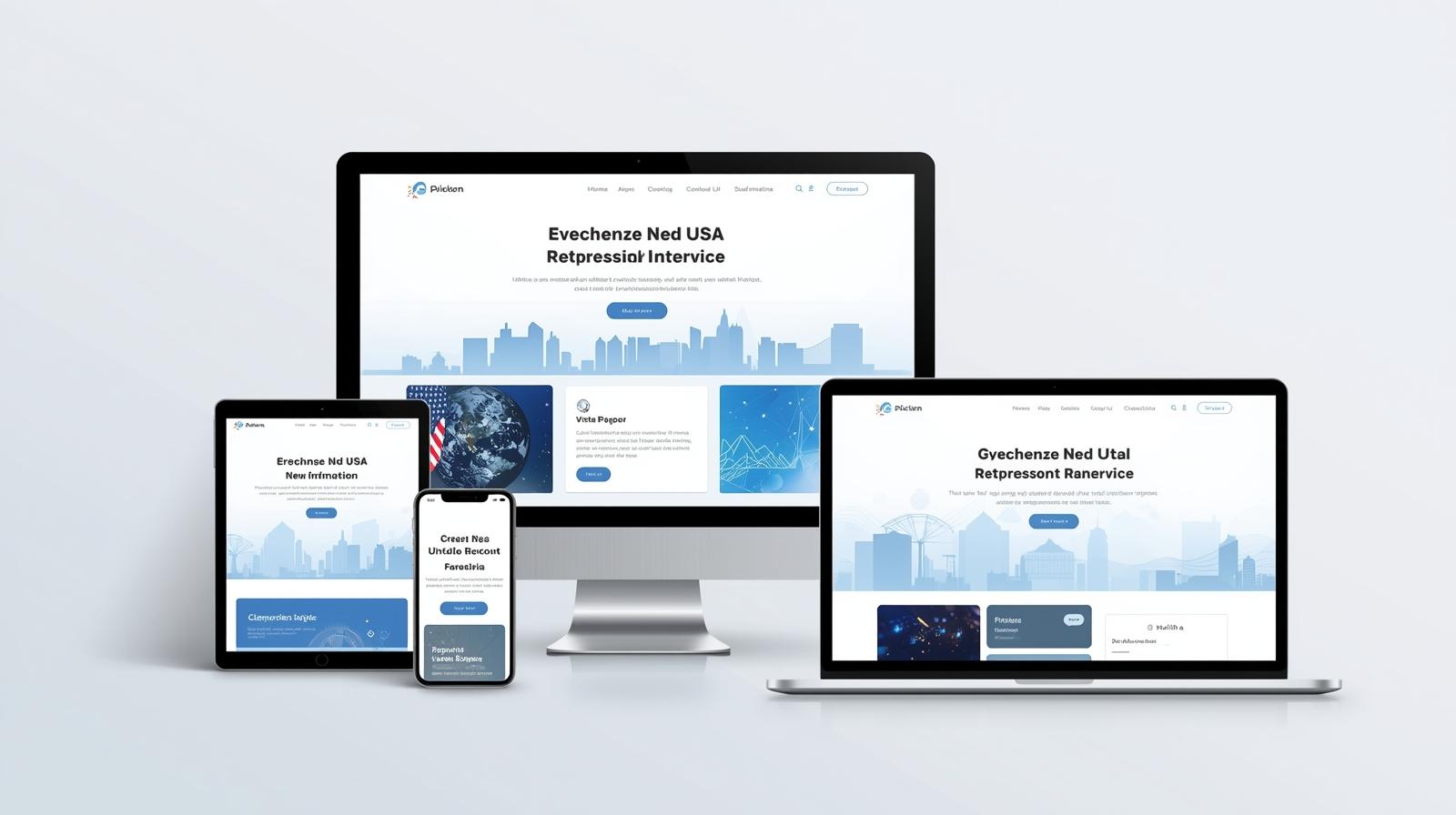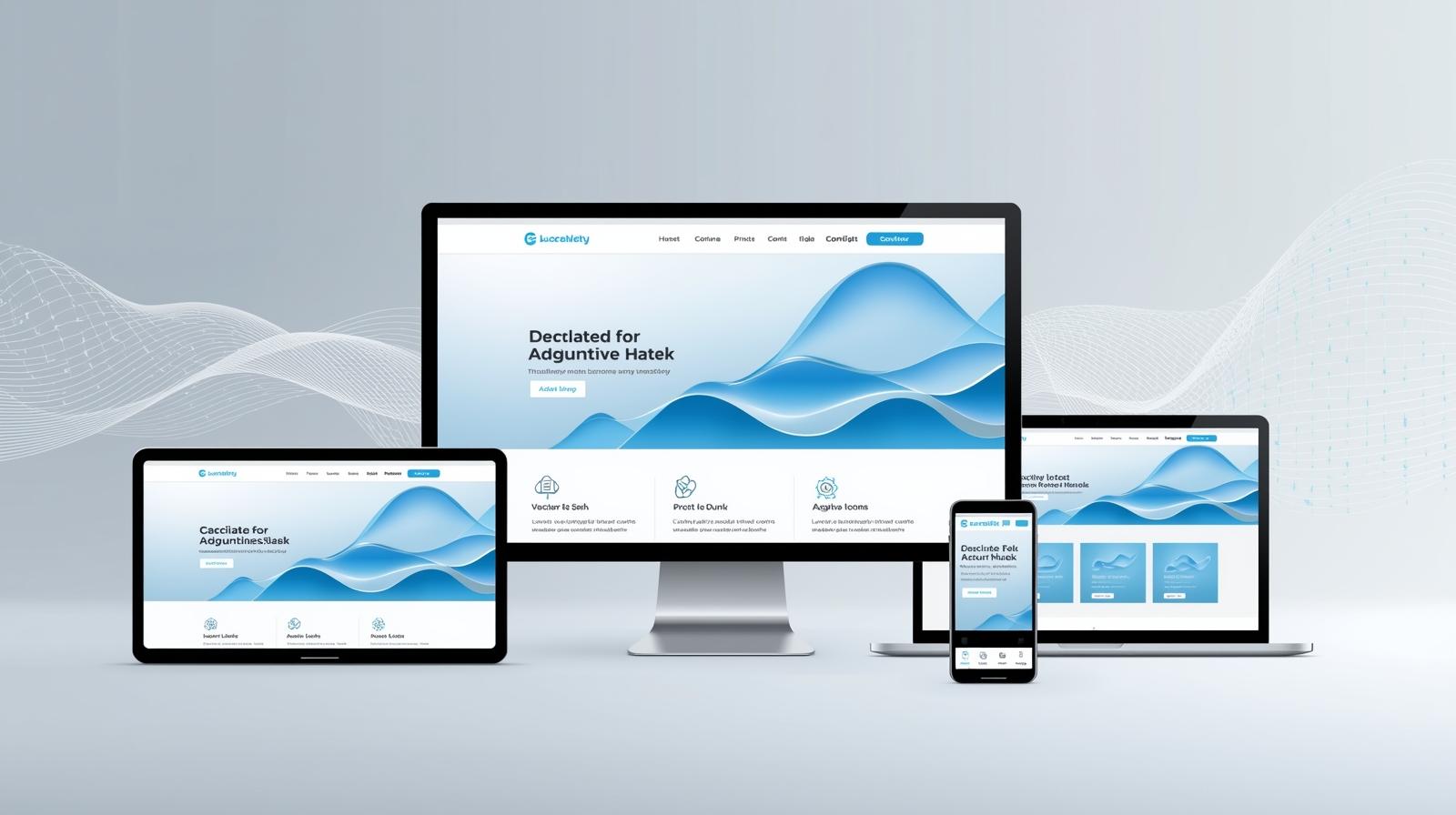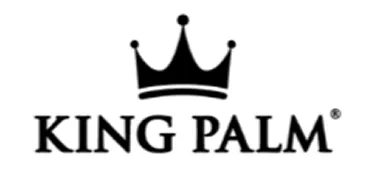How AI Is Redefining the Future of Website Development in USA
Published On
November 1, 2025
In today’s digital-first world, businesses across the United States are shifting their focus from traditional websites to intelligent, AI-powered platforms. Empower your business with AI web development in the USA by 99Graphics Design. Using advanced AI tools and ChatGPT-powered automation, we create intelligent, SEO-optimized websites that adapt to user behavior and boost engagement. As user behavior evolves and competition increases, staying visible online depends on more than just good design—it’s about adaptive web architecture that evolves with users.
From Silicon Valley startups to established New York enterprises, companies are embracing AI-driven web development to deliver personalized, data-informed experiences. This revolution isn’t just about automation; it’s about redefining how websites learn, adapt, and perform in real time.
What Is Adaptive Web Architecture?
Adaptive Web Architecture refers to a website design approach that uses artificial intelligence (AI) and machine learning (ML) to adjust and optimize itself based on user behavior, device type, and environmental factors.
Unlike traditional responsive web design—which only changes layouts for different screen sizes—adaptive web architecture goes deeper. It dynamically modifies elements like content, visuals, and functionality based on user preferences, engagement patterns, and performance data.
For example, if a user frequently visits an eCommerce site from their smartphone, an AI-enabled system will automatically simplify the layout, prioritize mobile-friendly visuals, and highlight personalized recommendations—all without human intervention.
The Rise of AI in U.S. Web Development
The U.S. tech industry has always been at the forefront of digital innovation. Today, artificial intelligence is driving a new wave of change in how websites are designed, built, and optimized. From Los Angeles web agencies to Austin-based development companies, AI tools are empowering developers to create faster, smarter, and more efficient websites.
Here’s how AI is revolutionizing web development in the U.S.A

Automated Code Generation: Tools like GitHub Copilot and OpenAI Codex help developers write cleaner, optimized code faster.
Personalized Content Delivery:
AI algorithms analyze user interactions and serve customized content that improves engagement and conversions.
Predictive UX Design:
Machine learning models forecast user behavior, allowing websites to adapt layouts and functionalities automatically.
Enhanced SEO Performance:
AI optimizes meta tags, analyzes competitor keywords, and ensures your website ranks higher in Google search results.
Voice and Visual Search Optimization:
AI integrates voice commands and image recognition, making websites more accessible and intuitive.
Why Adaptive Web Architecture Matters for U.S. Businesses

With over 1.13 billion websites globally, standing out in the U.S. digital market requires more than attractive visuals. It demands adaptive, intelligent web design that prioritizes user experience (UX) and performance.
Here’s why adaptive web architecture is a game-changer for businesses in the USA:
1. Personalized User Experience
AI enables websites to understand and adapt to each visitor’s journey. For instance, a real estate website in California can show listings relevant to a user’s location, while an online store in Texas can highlight products similar to previous purchases.
2. Enhanced Search Visibility
Search engines like Google now reward websites that are fast, mobile-friendly, and user-focused. Adaptive web systems automatically optimize these factors, helping your business rank higher in local SEO results and national search listings.
3. Smarter Data-Driven Decisions
By collecting and analyzing real-time user data, AI-powered systems provide insights into what works and what doesn’t. This enables businesses to make smarter marketing decisions and refine their online strategies continuously.
4. Cost and Time Efficiency
AI reduces the need for manual coding and repetitive testing, significantly lowering development costs and project timelines. This allows U.S.-based companies to scale their web presence faster without compromising quality.
5. Future-Proof Technology
The digital world changes fast. Adaptive web architecture ensures your site evolves automatically as algorithms, design standards, and technologies advance.
AI and the Future of Web Design in the USA

The future of web development in the United States lies in automation, intelligence, and adaptability. As AI continues to evolve, the next generation of websites will go beyond static content—they’ll think, learn, and interact like humans.
Emerging trends shaping the future include:
AI Chatbots and Virtual Assistants: Offering 24/7 customer interaction and support.
Predictive Personalization: Tailoring pages based on user history and predictive behavior.
Voice-Optimized Interfaces: Making navigation seamless across smart speakers and devices.
Neural Design Networks: AI systems that automatically create UI layouts based on performance analytics.
Real-Time SEO Optimization: Adaptive systems that update meta content as search algorithms evolve.
Businesses that invest in AI web development services in the USA now will stay ahead of competitors who rely on traditional, outdated websites.
How AI Enhances SEO and Online Visibility

SEO is no longer just about keywords—it’s about context, intent, and adaptability. AI-driven web architecture allows websites to analyze user intent in real time and adjust their SEO strategies accordingly.
For example:
Dynamic Metadata Updates:
AI updates titles, descriptions, and tags to match trending keywords.
Content Optimization:
Machine learning identifies which content formats perform best for different audience segments.
Link Building Automation:
AI tools discover backlink opportunities and manage outreach more efficiently.
Behavior-Based Ranking:
AI systems track engagement rates and adjust on-page SEO for better ranking performance.
This level of automation makes AI-powered websites incredibly effective for businesses targeting competitive U.S. markets such as New York, Chicago, and San Francisco.
Case Example: Smarter Design, Better Results
Imagine an e-commerce brand in Miami that uses adaptive web architecture. Through AI-based analytics, the website identifies that most users visit during evenings via mobile devices. In response, it automatically highlights night-mode visuals, simplifies the checkout process, and prioritizes mobile speed.
The result?
- A 30% increase in conversions,
- A 20% improvement in retention rate, and
- Higher visibility in Google search rankings.
That’s the power of AI-driven website development—real-time adaptability that enhances both performance and profitability.
Looking for a Web Development Company?
Compare our list of top web development companies near you.
Challenges and Opportunities Ahead
While AI brings immense opportunities, it also introduces challenges. Web developers must balance automation with creativity, ensuring that human-centered design remains a priority.
The future of web design in the USA will depend on developers who can merge AI technology with artistic innovation—creating websites that are both intelligent and emotionally engaging.
AI Web Development in the USA | 99Graphics Design
Transform your online presence with AI-powered web development in the USA by 99Graphics Design. Our team uses advanced AI tools and ChatGPT-driven automation to create responsive, SEO-optimized, and intelligent websites. With smart content generation, predictive design, and real-time optimization, we help your business grow faster online. Choose 99Graphics Design, the leading AI web development company in the USA, and experience innovation through artificial intelligence and next-gen technology.
Frequently Asked Questions (FAQs)
1. What is adaptive web architecture in website development?
Adaptive web architecture is a modern approach to website design that uses artificial intelligence (AI) and machine learning (ML) to automatically adjust a website’s layout, content, and functionality based on user behavior, device type, and preferences. It goes beyond traditional responsive design by learning from user data to deliver a more personalized and dynamic web experience.
2. How does AI impact the future of website development in the USA?
AI is reshaping website development in the USA by automating coding, improving SEO, personalizing content, and predicting user behavior. With AI tools like ChatGPT, Copilot, and AI-based UX platforms, developers can build intelligent websites that adapt in real time, helping U.S. businesses stay competitive in a fast-changing digital landscape.
3. Why should U.S. businesses adopt adaptive web architecture?
Businesses in the United States should adopt adaptive web architecture to improve user experience, boost conversion rates, and future-proof their online presence. AI-driven web systems analyze real-time data to adjust design and performance automatically — resulting in faster websites, higher engagement, and better Google rankings.
4. What are the key benefits of AI-powered website design?
AI-powered website design offers several benefits:
- Real-time personalization for each visitor.
- Faster load times and improved performance.
- Automated SEO optimization.
- Predictive UX based on visitor behavior.
- Cost efficiency and reduced maintenance time.
These advantages help businesses achieve better visibility and engagement across digital platforms.
5. Is adaptive web architecture better than responsive design?
Yes. While responsive design adjusts website layouts for different devices, adaptive web architecture takes it a step further. It uses AI to predict user intent and modify content dynamically. This ensures that every visitor gets a customized experience — whether they’re on desktop, mobile, or tablet — improving retention and conversion rates.
6. How can AI improve website SEO performance?
AI improves SEO by automatically updating meta tags, identifying trending keywords, optimizing content for search intent, and analyzing user interaction data. AI-driven systems also detect technical SEO issues faster, helping your website maintain strong visibility across U.S. search engines like Google and Bing.
7. What industries in the USA benefit most from adaptive web development?
Industries that benefit most include e-commerce, real estate, healthcare, education, travel, and digital marketing. These sectors rely heavily on user engagement and personalization — areas where adaptive web architecture powered by AI can significantly improve customer satisfaction and ROI.
8. How can a web development company in the USA implement AI solutions?
A professional web development company in the USA, such as 99Graphics Design, can integrate AI solutions by using predictive analytics, automation tools, and smart UX systems. They can design adaptive websites that adjust layouts, improve SEO, and deliver AI-enhanced user experiences tailored to your brand’s audience.
9. What tools are used for AI-driven web development?
Popular tools include TensorFlow, OpenAI APIs, ChatGPT, GitHub Copilot, Adobe Firefly, and Google Cloud AI. These platforms enable developers to create intelligent, responsive, and data-driven websites that continuously learn and evolve.
10. What is the future of AI in web design and development?
The future of web design lies in autonomous, adaptive, and predictive web systems. AI will make websites smarter — capable of learning from users, generating real-time design updates, and integrating advanced technologies like voice search, AR, and chatbots. Businesses embracing these innovations will lead the next era of digital transformation.
11. How does adaptive web architecture affect user experience (UX)?
Adaptive web architecture enhances UX by delivering content tailored to user intent. Whether through personalized visuals, predictive navigation, or contextual recommendations, it ensures every visitor feels understood — creating deeper engagement and longer on-site time.
12. How can U.S. companies stay ahead with AI web development?
To stay competitive, U.S. companies should partner with experienced AI web development agencies that specialize in adaptive design and automation. Regular AI integration updates, performance tracking, and SEO optimization help businesses maintain leadership in an AI-first digital economy.
13. Where can I find the best adaptive web development company in the USA?
If you’re looking for a trusted web development company in the USA that specializes in AI-powered adaptive web architecture, 99Graphics Design offers expert solutions tailored to your business goals. Their team blends creativity, AI automation, and responsive design to build future-ready websites that perform exceptionally across all devices.
Conclusion: The Smart Way Forward
In the evolving landscape of U.S. web development, adaptive web architecture isn’t just a trend—it’s the future. Businesses that adopt AI-powered web design today are building a foundation for long-term digital success.
By partnering with an expert web development company in the USA that specializes in AI-driven and adaptive web solutions, you can ensure your online presence stays visible, dynamic, and competitive in an AI-dominated world.
Whether you’re a startup in California or an enterprise in New York, embracing adaptive web architecture will keep your brand relevant in the age of intelligent machines.
Ready for
Digital Transformation?













